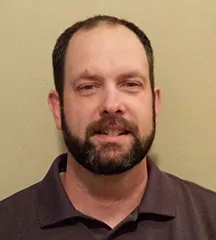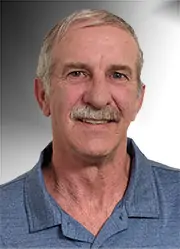

Join SCS Engineers at AEC PM Connect 2025 – Kansas City, October 27-28 at Keen Wealth Advisors in Overland Park, KS. This event focuses on project management in the Architecture, Engineering, and Construction industry.

AEC PM Connect – Kansas City offers two tailored learning tracks for project managers and those responsible for their development, covering essential topics like risk management, scope creep, earned value, PM tools, and strategies for building a strong project management culture.
We’re proud to have Jenny representing SCS at this impactful event and look forward to connecting with industry peers in Kansas City! Register Today
Join SCS Engineers at the 13th Annual Georgia Brownfield Associations, Brownfield Seminar on April 16, 2025, at the Georgia Power Headquarters in Atlanta, GA! This event brings together industry leaders across development, legal, engineering, risk management, and economic development to discuss innovative solutions for cleaning and redeveloping contaminated properties. Whether attending in person or virtually, participants will gain valuable insights, connect with key stakeholders, and explore strategies for revitalizing communities across Georgia and beyond.
SCS Engineers’ Douglas Latulippe will be presenting on “Solar on Brownfields”. Don’t miss this opportunity to learn from top experts in the field.
Carolinas Air Pollution Control Association (CAPCA) is hosting its 2024 Spring Meeting at the historic Omni Grove Park Inn in Asheville, North Carolina. CAPCA is a forum for over 600 members to share perspectives on air pollution control across the Carolinas. This year’s Spring Meeting features updates on regulations and enforcement, specialty workshops on testing and monitoring procedures, door prizes, and giveaways. This year’s exhibitor social, “The Great Outdoors,” invites attendees to wear their favorite gear for a fun gathering with fellow outdoor enthusiasts.
The event is open to CAPCA members and their guests. Register onsite!
August was an exciting month for the Risk Management group at SCS Tracer Environmental, a practice of SCS Engineers. Bengie Branham, one of our inspectors and trainers, is the current RETA President. In that position, he and Jim Barron (RETA executive director) went to South Africa to attend the second annual GCCA African Cold Chain Conference in Cape Town. This visit aimed to promote RETA’s mission of training ammonia refrigeration operators to ensure they have the most current education to be safe and efficient. RETA is the only organization globally with ISO, ANSI, and ANAB accreditation. They currently have a total of 24 Authorized Instructors (RAIs). SCS Tracer Environmental has 5 RETA Authorized Instructors.
There were many discussions about energy security and conservation. The electrical grid is very degraded and not reliable. Many facilities used generators during the load-shedding period, forcing multiple starts on a system. Another alarming metric was that over 40% of field produce was wasted before entering a facility due to temperature and storage failures.
While the U.S. may struggle to address problems with its transportation infrastructures, RETA hopes to help address the educational skill gaps. Many participants at the Conference showed a willingness to embrace new ideas and solutions. One of the items RETA will work with is forming the RETA Chapter in South Africa. Local Chapters are a great way to assist in learning, networking, and sharing ideas. There is at least one Chapter in every state and 13 different countries.
Bengie was impressed with the vast amount of resources and opportunities available on the continent, but high unemployment and other barriers prevented this potential from being fully realized. He hopes that addressing the skills gap will assist many in the population. At the Conference, he felt that many surrounding African countries were committed to providing and operating safe and efficient ammonia refrigeration systems, an exciting outreach with a multitude of opportunities.
SCS Tracer Environmental is a strong supporter of RETA and its mission. Along with the 5 RAIs, we also have three past, one current, and (at least) one future RETA President. Now, on to Jacksonville for the 2023 National Conference!
Additional Information:
That turkey doesn’t get to the table without a lot of help. the Refrigerating Engineers and Technicians Association (RETA) is the most recognized organization in the country dedicated to the professional development of industrial refrigeration operators and technicians. These are the people who help keep food cold and safe! SCS Engineers recently celebrated two SCS Tracer professionals at RETA’s 2021 National Conference.

Eric Girven was honored with the Guy R. King Memorial Award for his outstanding performance educating and training RETA members to operate ammonia refrigeration systems safely and efficiently. Mr. Girven is a Project Manager and an Ammonia Refrigeration Advisor in SCS’s Tracer Environmental practice. Very active in RETA and the International Institute of Ammonia Refrigeration, Eric is an industrial refrigeration process safety management, risk management, and energy management, expert. He conducts mechanical integrity inspections, process hazard analysis, compliance audits and is a certified industrial refrigeration instructor.
Bengie Branham, pictured above, joins Daryl Davis, Eric Girven, and Gene Dumas as RETA Authorized Instructors. Our SCS colleagues are highly qualified trainers for RETA’s credentialing program. There are only 23 RAI-certified trainers in the country. Each works tirelessly to help operators and technicians learn and certify themselves to run ammonia refrigeration systems safely. Learn more about education and certification here.
We’re proud of our fellow SCSers and thankful to work with them as they protect the health and safety of others while getting food safely to your Thanksgiving dinner table and to those in need. Happy Thanksgiving!

Meet RETA Authorized Instructor (RAI) Daryl Davis. Davis joins the SCS Tracer Environmental training team providing ammonia refrigeration safety, Risk Management Plans, and Process Safety Management certified training.
This SCS team offers comprehensive programs including Ammonia Refrigeration Operator Classes, RETA Certification Review Classes, PSM/RMP & General Duty Clause Safety & Compliance Classes for Ammonia Refrigeration Facilities, Continuing Education, & Custom Training Classes.
SCS’s RAI’s have over 56 combined years of industrial refrigeration expertise. Our trainers use an online delivery system with a live instructor, or on-site, in-person classes, to ensure you continue training for Process Safety Management & Risk Management Program compliance. Hands-on site training can now take place under even noisy plant conditions using high-tech headsets.
RAI – RETA Authorized Instructors have certifications in their mastery teaching advanced refrigeration system concepts and operations at a level that qualifies them to assist CARO, CIRO, CRST, and CRES candidates with their preparations and activities required to earn RETA credentials.
Get the latest in RETA certified training news and classes. The Refrigerating Engineers and Technicians Association (RETA) is the most recognized organization in the U.S. dedicated to the professional development of industrial refrigeration operators and technicians.
The recent MWEA Conference covered a wealth of other important topics on water management and safety, including this presentation with SCS Engineer’s Remote Monitoring Control specialist, Brett Heist. Brett and Jarod Stuyvesant co-presented “More Than a Pretty Map – GIS Covers Your Assets,” including demonstrations of how the City of Zeeland is using GIS to enhance the efficiency of maintenance and inspection activities and improve the reliability of physical infrastructure throughout its community, leading to increased public safety and financial savings.
Click here to view these demos!
DEMOS: There are some unique methods to plan for capital improvements and streamline data storage and access being implemented in the City of Zeeland. The City has an integrated GIS map for its storm, sanitary, water, and streets, including information about each asset within the system: material, size, inverts, condition, business risk, and even televised inspection videos for some of the storm and sanitary lines.
The GIS maps’s information is used daily by public works and to create a comprehensive capital improvement map that the City uses to plan for 5-year improvements, significantly improving planning and budgeting efficiency while ultimately providing the public with safer infrastructure.
Features include televised inspection videos attached to a respective asset after uploading and accessible with the click of a mouse. Access entire buildings in the same manner as horizontal assets using a 3D online viewer.
The Zeeland Clean Water Plant RAS Building: Using AutoCAD data, the City created a 3D GIS viewer of this building and its assets. Asset information, such as blower and pump sizes and operation and maintenance tasks, are accessible without having to sort through shop drawings and as-builts.
Another example of implementing 3D GIS data like this is for MobileGR who uses a 3D GIS model to store asset data and maintenance tasks for every one of their nine parking ramps in downtown Grand Rapids.
In his latest article, Bill Lape reviews IIAR safety compliance and provides best practices. Eyewash/shower units should be within 55 feet, but that can feel like a long way if there are obstacles or hurdles to reach it.
Read his article, and review your plant or machine shop.
SCS Engineers and Florida East Coast Industries (FECI) are to be honored at the annual conference in Florida planned for August 2021. The firms will receive a 2021 Engineering Excellence Award by the American Council of Engineering Companies of Florida. The honor acknowledges SCS for the environmental engineering firm’s innovative design that integrates groundwater remediation with the stormwater management system on a 500-acre former landfill site. The design enabled the developer to remediate the former landfill into the Countyline Corporate Park in Southeast Florida.
Industrial real estate is in high demand, but former landfills and brownfields present environmental challenges that can become cost-prohibitive to redevelop without sound environmental expertise. FECI retained the professional services of SCS Engineers to provide consulting and design services addressing the environmental concerns preventing the transformation of a former landfill into a state of the art business park.
Environmental guidelines require 28% (or about 140 acres) of the site to be set aside for stormwater retention. The set aside would require the relocation of several thousand cubic yards of waste and prevent the 140 acres’ redevelopment. The estimated loss of $300 million in potential real estate sales, coupled with the groundwater remediation expense, made the site redevelopment cost-prohibitive. Unless resolved, the problem also impeded FECI’s corporate sustainability goals.
SCS’s experts in landfill design, closure, and remediation, developed a solution tying together the groundwater remediation and stormwater management systems. The integrated system allows for shallow aquifer recharge with stormwater and captures impacted groundwater at the site’s boundary. “We were able to provide an alternative design acceptable to all the permitting agencies, eliminating the need to set aside large areas for stormwater retention,” said Mr. Som Kundral, P.E., SCS’s senior project manager.
SCS’s remedial actions protect public health while opening the site for reuse. The project will be completed in phases. Phase I, consisting of 160 acres, is complete, with two million square feet of occupied businesses and a 30-acre community park. Development of the other three phases, which include another six million square feet, is underway.
The development will create hundreds of new jobs, deliver several hundred million dollars to the city and county tax base, and provide a 30-acre public park. “The engineering solution protects the environment while meeting FECI’s strategic, social, economic, and sustainability goals,” said Mr. Eduardo Smith, P.E., SCS’s senior vice president of client success.
Learn more about these related topics, events, and case studies at SCS Engineers:
The Emergency Planning and Community-Right-to-Know Act (EPCRA) was enacted by Congress to assist local communities in protecting public health by requiring facilities to file an annual EPCRA Tier II Report, identifying hazardous chemical inventories maintained at the facility. Submitting Tier II Reports allows the local emergency personnel to be aware of the chemicals that are present within facilities in their jurisdiction, and prepare for and respond to chemical emergencies.
The annual federal deadline for submitting Tier II Reports is March 1st (more to come on
this deadline). Facilities are required to report any chemicals, which are included within the OSHA Hazard Communication Standard (29 CFR 1910.1200). A list of EHSs and their TPQs can be found at 40 CFR 355, Appendix A. The EPA has compiled a “List of Lists” which provides a consolidated list of chemicals that are subject to EPCRA Tier II reporting along with their Threshold Planning Quantities (TPQ). The TPQ is the amount of chemical kept on-site above which you must file a Tier II. It is important to note that ammonia has a Tier II reporting threshold of 500 pounds.
Some states require that Tier II forms be submitted electronically, while other states may require hard copy submittals. Still, others require both digital and printed submissions.
Keep reading to find out more from Travis Weber at SCS Engineers, Tracer Environmental Practice…